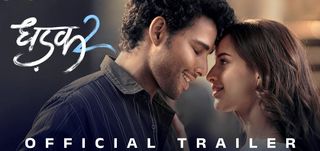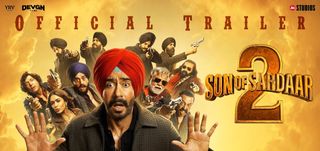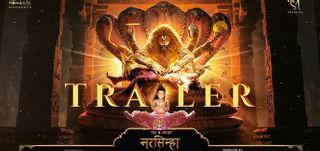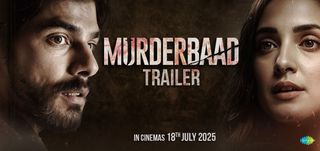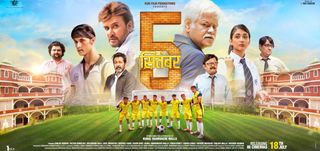
Ludo Movie Review
In Anurag Basu's new Netflix film 'Ludo', a man laughs when a speeding van crashes into a biker, while evoking the same reaction in us. Ludo is a tragicomedy of epic proportions, where the comedy often displaces the tragic elements. Basu's films may not be flawless but are whimsical and inventive. You may or may not like his cinematic outputs, but could never put these down to a lack of trying. What he tries to do in Ludo is something madcap, a comedy of manners if you will.
With Ludo, Basu is back to the multiple storyline format, which he started with 2007's 'Life in a Metro'. As the game of Ludo, the positive events in some characters' lives have a negative effect on the others'. This is the only way the lives of the movie's characters overlap. Not much in Ludo's universe happens organically, but the movie is driven by its eccentricity and self-awareness. Basu knows that he is not making some masterpiece here, and his characters also behave thus.
There are four main universes in Ludo. In one, Rajkummar Rao's Kabir 'Aalu' Sabar pines for Fatima Sana Shaikh's Pinky. Aalu has always been fond of Pinky, but she marries someone else. Despite that, he goes to Pinky's house daily to have a glimpse of her. He is the kind of man who describes himself as an emotional fool. And, Pinky is the kind of person who is naive, yet whose actions unknowingly have a chain of bad effects. Both actors are outstanding in Ludo's best portions. Rao, in particular, makes anguish look astonishing, and reminds you of Fahadh Faasil from last year's Super Deluxe.
In another storyline, Abhishek Bachchan's gangster Bittu finds help from a small girl who has run off from her house so that her parents could care for her a little more. Bittu is an estranged adult trying to piece his life back together by putting a sad past behind him. It is the solitude that the child and the gangster have in common. This storyline starts in a cute fashion, but it becomes borderline mawkish as Basu tries to push our buttons.
In the third storyline, and the film's weakest, Aditya Roy Kapur's Akash tries to help Sanya Malhotra's Shruti out of a predicament. The two have sex in a hotel room, but someone records their act and uploads it on social media. With her marriage around the corner, Akash must help Shruti to find the source of the video and destroy it. The actors are quite charming, but their track does not rise above an ordinary level as it unfolds casually.
Then there is the track involving Pearle Maaney's Malayali nurse, Shreeja, and Rohit Suresh Saraf's Rahul. She does not speak or understand Hindi, whereas he is alien to Malayalam. The language becomes a barrier as the two must work out a way to handle a suitcase with much looted money and a group of goons after it.
The only main characters who visit multiple universes more in Ludo are Pankaj Tripathi's gangster Sattu and Ishtiyak Khan's inspector. Tripathi is fast becoming Bollywood's gangster of choice. Only, here, he plays a Vijay Raaz-type gangster who does things mostly for laughs. There is a crackling early scene where Tripathy gleefully shoots down a man in his bathtub, with an old Bollywood song playing at the back. Tripathy has a terrific comic timing and a sense of occasion. He is the kind of actor whose presence you feel even when he is not around. And, Basu and his writers save the film's best one-liners for Tripathy's Sattu. My favorite line reads thus: "When life suck, everyone fuck." Shalini Vatsa as a grown-up nurse provides able support to Tripathy's mad don.
At a running time of about 2.30 hours, you will get a sense of much going over your head when seeing Ludo. For a simple, madcap film, the runtime is at least 30 minutes too long. Basu himself is the director of photography here, and he even squeezes into the film as a narrator. He does not just lend his voice to narrate but appears as more of a running commentator of the film's themes. Meanwhile, Pritam's hummable songs tone down the film just when it starts to take itself seriously.










